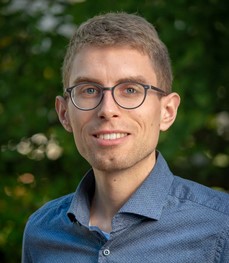Daniel: Initially, I wanted to become an organizational psychologist. During my college years, I discovered the field of environmental psychology that essentially studies how and when people make pro-environmental choices, such as conserving energy in some way. I was – and still am – fascinated by this question, in part because I personally care a lot about climate change and environmental protection. Most of my work indeed focuses on energy consumption and conservation, because I see the transition to a sustainable energy system as one of the key pillars of addressing climate change.
Evans School: Tell us a little about your current ongoing projects.
Daniel: Much of my recent work has focused on demand response, which is a temporary change in energy consumption by consumers in order to better match the available supply. For example, households with an EV could charge their car at times when there is abundant wind power. My research has investigated to what extent private household as well as the commercial sector would be willing to participate in demand response programs, and what motivations, drivers, and barriers can explain this. Related to this, I have looked at the role of financial incentives, such as rebates or pricing, in stimulating demand response.
Over the last year, I have started to think about a new issue in the realm of climate and energy policy, namely technologies to remove carbon dioxide from the atmosphere. These negative emissions technologies are increasingly seen as essential for combating climate change, but so far we know very little about whether these technologies will be accepted on a large scale and what role they can (and should) have next to more conventional climate change mitigation approaches. This topic is what brought me here and what I will mostly focus on over the next few months.
Evans School: We noted that Evans Faculty Ann Bostrom is your sponsor during your time here. How will time working with Ann and others at UW support your research program?
Daniel: Ann is a renowned expert on climate change communication and risk perception, concepts that are central for developing research on the framing and acceptance of negative emissions technologies. Collaborating with her and others at Evans will really enable new perspectives on this research. I am also curious to learn more about the public policy research at Evans in general, as this is a less developed field in the German university landscape, particularly when it comes to climate policy.
Evans School: Much of your work focuses on Germany, but your training and work connects to a host of settings – do the policy challenges around energy conservation vary much across the European continent and North America?
Daniel: Most of my research is empirical and indeed investigates particular settings and populations. I would say that a lot of it is generalizable to certain other populations at least to some extent, but there are also aspects that are distinct. For example, energy systems in European and North American countries differ in many respects, such as the energy supply mix, grid infrastructure, and regulations. There are different approaches to climate change mitigation and, linked to that, differing public attitudes towards climate and energy policy. As one example, capturing carbon and storing it underground is de facto forbidden in Germany due to certain risk perceptions, whereas Norway is actively encouraging underground storage facilities. I’d be happy to talk more about differences between European countries and North America.
Evans School: Last question – what do you hope to do in Seattle outside of work while you are here this quarter?
Daniel: I’m very excited to explore the city and surrounds over the coming months! I love being outdoors for hikes or runs, so I will try to get to the numerous parks in the city and do some other weekend trips like visiting the Olympic Peninsula.
Evans School: Sounds like you have some great plans. Welcome to our community!
